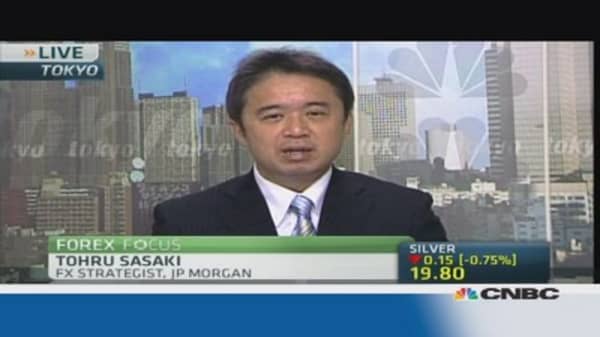Weekly purchases of foreign bonds by Japanese investors surged to a three-year high last week, as low domestic rates encouraged local institutions to search for higher returns overseas.
Domestic investors, such as banks, pension funds and insurers, bought 1614.8 billion yen ($16.45 billion) in overseas debt during the week that ended August 10, following $690.3 billion in purchases a week earlier, according to weekly data from the Ministry of Finance. They have remained net buyers of foreign bonds for six consecutive weeks.
"This is really in line with what the BOJ wants: to encourage locals to move their funds abroad as it helps with the weakening of the yen," Nizam Idris, head of strategy, fixed income and currencies at Macquarie told CNBC.
(Read more: Is the best trade of 2013 losing its luster?)
"With local rates likely to remain low, the increase in buying is likely to continue," he said.
Increased buying of overseas assets is seen as a key factor in driving further yen weakness. The currency has fallen 22.4 percent against the U.S. dollar since November 2012, when Prime Minister Shinzo Abe first started talking about the need for radical monetary and fiscal policies to revive the economy.





